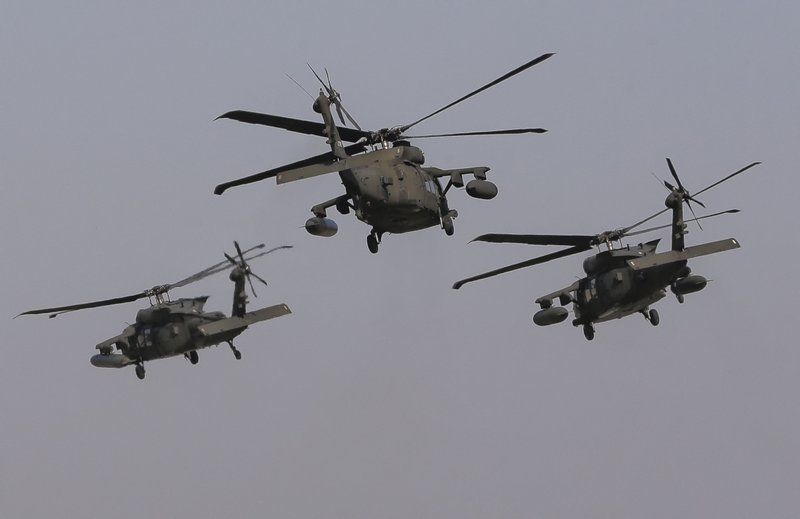WASHINGTON -- The House voted Wednesday to approve a $578 billion spending bill that keeps the U.S. armed forces operating through September and sets the stage for substantial increases in the Pentagon's budget as advocated by President Donald Trump.
The fiscal 2017 defense legislation passed by 371-48 in the GOP-led chamber, clearing the way for the Senate to act. Arkansas' four representatives, all Republicans, backed the bill.
The Trump administration is preparing a $30 billion supplement to the bill, which serves as a down payment on the president's promise to repair what he and other Republicans have described as a military "depleted" by the Obama administration's refusal to spend enough money on it.
The United States spends more on defense than the next seven nations combined. Yet, GOP defense advocates are pressing Trump to spend tens of billions more on defense than he's envisioned for the next budget year.
The 2017 defense legislation, crafted by House and Senate negotiators from both parties, tracks the funding levels for Pentagon procurement, operation and maintenance, and research and development programs authorized by the annual defense policy bill that former President Barack Obama signed into law in December.
The spending bill has $516 billion for basic military requirements, which covers everything from the purchase of bombs and bullets to troop training. Nearly $62 billion is included in the bill to pay for ongoing military operations in Afghanistan, Iraq and elsewhere.
The Pentagon and other federal agencies are currently running under a stopgap spending bill that expires April 28. Congress approved the temporary measure to avoid a government shutdown late last year, triggered by persistent bickering among Republicans and Democrats over spending levels for the Pentagon and other federal agencies.
Senior U.S. military commanders have decried the frequent use of stopgap spending bills, which are known as continuing resolutions. Under these short-term agreements, the Pentagon's budget is set at the previous year's level, and the military services are barred from starting new programs.
The spending bill also provides $980 million to train and equip foreign forces to combat the Islamic State group.
Another $150 million is allotted in the bill to supply Ukraine with lethal and nonlethal aid to counter Russian aggression. Russia's annexation of Crimea in 2014 and its incursions into eastern Ukraine have drawn widespread condemnation in Europe and the United States along with a raft of economic penalties.
There's also $3.4 billion for the European Reassurance Initiative, another program aimed at countering Russian threats.
According to Rep. French Hill, R-Ark., the bill also boosted funding for C-130 aircraft upgrades by $97.5 million to nearly $106.7 million. The bump, he said, should be a boon to the Little Rock Air Force Base in Jacksonville, Ark., which houses the largest fleet of the military transport planes in the world.
"This funding is crucial toward upgrading the planes at Little Rock Air Force Base," Hill said in a statement after Wednesday's vote. "Our local Air Force base remains one of the most technologically advanced and well-run military installations in the entire country, and this funding will help ensure it continues to be a center of excellence for our global airlift operations."
For the 2018 budget year, which begins Oct. 1, Trump has previewed a base defense budget for 2018 that is $54 billion above the spending caps mandated by a rule known in Washington-speak as sequestration.
But 33 Republican members of the House Armed Services Committee want him to add at least another $37 billion, for a total increase next year of $91 billion beyond the caps. In a letter to the House Budget Committee released Wednesday, the lawmakers said that's the amount needed to begin reversing the erosion of the military's combat readiness.
Trump's envisioned level, they wrote, "would unintentionally lock in a slow fix to readiness, consistent with the Obama administration's previous position, from which we would not be able to dig out."
Information for this article was contributed by Hunter Field of the Arkansas Democrat-Gazette.
A Section on 03/09/2017

